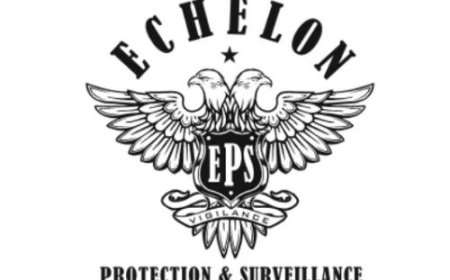Step-by-Step Guide: What’s Included in ICO Development Services
Explore the complete step-by-step guide to ICO development services, including token creation, smart contract development, legal compliance, marketing, and post-launch support for a successful crypto fundraising journey.

The cryptocurrency space is booming, and Initial Coin Offerings (ICOs) have emerged as one of the most prominent fundraising methods for blockchain startups. Despite regulatory hurdles and competition from newer models like IDOs and IEOs, ICOs remain relevant due to their accessibility and decentralized structure. However, launching a successful ICO requires a meticulous approach involving strategic planning, technical development, legal compliance, and aggressive marketing. Thats where ICO development services come into play.
In this detailed guide, well explore whats included in professional ICO development services step by step to help you understand how your crypto project can benefit from expert support.
Step 1: ICO Project Planning & Consultation
Before any technical development begins, a clear and thorough consultation phase lays the foundation for success. This stage typically includes:
-
Idea Evaluation: Reviewing the project concept to determine feasibility, market potential, and blockchain applicability.
-
Competitor Analysis: Studying similar ICOs and blockchain solutions to position your project effectively.
-
Token Utility Mapping: Defining how the token will function within the ecosystem, its use cases, and its long-term value.
-
Roadmap Creation: Outlining key milestones in development, token sales, and post-ICO phases.
This strategic groundwork ensures that the ICO isnt just a technical launch, but part of a long-term vision.
Step 2: Tokenomics Design
One of the most critical elements of any ICO is tokenomics the economic model that defines how the token operates and accrues value. ICO development companies help design a compelling and sustainable token model, including:
-
Token Type: Choosing between utility, security, or hybrid tokens.
-
Blockchain Selection: Selecting a chain like Ethereum, Solana, BNB Chain, or others based on speed, cost, and compatibility.
-
Token Supply: Deciding total supply, initial circulating supply, and future minting (if applicable).
-
Allocation Strategy: Distribution plans across stakeholders founders, investors, advisors, ecosystem, reserves, etc.
-
Vesting & Lock-Up: Protecting token value by avoiding dumps through structured release schedules.
Well-planned tokenomics are essential to investor trust and long-term project growth.
Step 3: Smart Contract Development
Smart contracts are the core of any ICO they automate token creation, sales, and transfers. ICO developers provide:
-
Custom Smart Contracts: Writing code to manage token logic, sale mechanics, airdrops, and vesting.
-
ERC-20 / BEP-20 / SPL Standards: Depending on your blockchain, the smart contract will follow its native token standard.
-
Audit-Ready Code: Developing secure, gas-optimized code that can pass third-party audits.
-
Crowdsale Contracts: Enabling public token sales with features like contribution limits, whitelisting, and refund mechanisms.
Smart contracts must be tested thoroughly to prevent vulnerabilities and hacks.
Step 4: Token Development & Deployment
Once the smart contracts are coded and tested, the actual token is minted and deployed on the selected blockchain network. This involves:
-
Token Creation: Generating tokens based on the smart contract code.
-
Token Verification: Getting the token verified on blockchain explorers like Etherscan or BscScan.
-
Wallet Integration: Ensuring compatibility with popular wallets (MetaMask, Trust Wallet, Ledger).
-
Distribution Tools: Building systems for token airdrops, bounty rewards, or staking options.
Proper deployment ensures seamless interaction with users and exchanges.
Step 5: ICO Website & Dashboard Development
A compelling, professional website serves as the face of your ICO. It must build trust and clearly communicate your projects value. Development companies offer:
-
Landing Page Design: A conversion-optimized page that explains the project, roadmap, team, and token details.
-
Investor Dashboard: A secure portal where users can register, complete KYC, participate in the sale, and track tokens.
-
Real-Time Analytics: Showing fundraising progress, number of investors, and token supply statistics.
-
Multi-Device Support: Ensuring the website is mobile-responsive and accessible on all platforms.
This front-end development is key to credibility and investor engagement.
Step 6: Legal Compliance & KYC/AML Integration
Navigating the regulatory landscape is critical to avoiding legal trouble. ICO development services assist with:
-
Jurisdiction Analysis: Recommending crypto-friendly countries like Switzerland, Singapore, or Estonia for project incorporation.
-
Legal Framework Setup: Drafting token sale terms, privacy policy, and whitepaper disclaimers.
-
KYC/AML Integration: Embedding third-party compliance modules into the ICO platform to verify investor identities and source of funds.
-
Security Tokens: If applicable, ensuring the token complies with SEC or other regulatory standards.
Legal preparation protects the project from litigation and builds investor trust.
Step 7: ICO Marketing & Community Building
Even the most well-developed ICO will fail without effective marketing. Thats why ICO development services typically include or partner with token marketing specialists to offer:
Digital Marketing Campaigns
-
Search Engine Optimization (SEO): Ranking your ICO site and blogs for crypto-related keywords.
-
Content Marketing: Publishing informative articles, press releases, and technical blogs.
-
Email Campaigns: Regular updates to subscribers and potential investors.
Community Management
-
Telegram & Discord Setup: Building active communities moderated by bots and humans.
-
AMA Sessions: Hosting live chats with the team to answer community questions.
Influencer & PR Outreach
-
KOL (Key Opinion Leader) Campaigns: Collaborating with crypto influencers on X (Twitter), YouTube, etc.
-
Press Coverage: Getting featured in top crypto media like Cointelegraph, CryptoSlate, and Decrypt.
Paid Promotions
-
Google Ads & Reddit Ads (where permitted)
-
Banner Ads on Crypto Platforms
A strong marketing plan increases visibility and accelerates token sales.
Step 8: Whitepaper Creation
The whitepaper is the blueprint of your ICO project. It outlines the technology, vision, economics, and roadmap for investors and regulators alike. Professional teams assist with:
-
Technical Writing: Breaking down complex ideas into understandable terms.
-
Tokenomics Detailing: Elaborating on supply mechanics, usage, and governance.
-
Problem-Solution Fit: Justifying why the project exists and how it addresses real-world issues.
-
Design & Formatting: Presenting the whitepaper with visually appealing charts, tables, and branded styles.
A high-quality whitepaper is often the make-or-break document for investor interest.
Step 9: ICO Launch Support
The actual launch of the ICO requires seamless coordination of all systems. Development teams ensure that everything runs without glitches by:
-
Pre-Launch Testing: Running stress tests on smart contracts and dashboards.
-
Whitelisting & KYC Review: Finalizing investor lists and verifying all details.
-
Multi-Currency Payment Support: Enabling payments via ETH, BTC, USDT, BNB, and more.
-
Real-Time Monitoring: Keeping track of performance, contributions, and issue resolution.
Professional support during this phase is crucial to avoid transaction failures or PR disasters.
Step 10: Post-ICO Services
The work doesnt end after the ICO concludes. In fact, the post-sale period is crucial for maintaining community interest and fulfilling promises. Post-ICO support includes:
-
Token Listing Support: Assisting with exchange listings (CEX and DEX).
-
Liquidity Management: Setting up liquidity pools and providing initial token liquidity on platforms like Uniswap or PancakeSwap.
-
Staking & Rewards Modules: Engaging users through token utility.
-
Analytics & Reporting: Offering dashboards for fundraising performance, wallet analytics, and investor insights.
-
Ongoing Community Engagement: Hosting updates, bounties, and governance events.
This long-term strategy helps sustain momentum and builds a loyal user base.
Step 11: ICO Security & Audits
Security is a non-negotiable part of ICO development. A single exploit can ruin your projects credibility and finances. Services often include:
-
Smart Contract Audits: Partnering with third-party auditors like CertiK, Hacken, or Trail of Bits.
-
DDoS Protection: Safeguarding your website and dashboard from cyberattacks.
-
Penetration Testing: Simulating attacks to find vulnerabilities.
-
Bug Bounty Programs: Encouraging ethical hackers to report flaws.
Security reinforces trust and ensures regulatory compliance.
Step 12: Ongoing Technical Support & Upgrades
Finally, an ICO development agency offers maintenance and upgrades even after the launch. These include:
-
Server Monitoring: Uptime tracking, traffic balancing, and crash recovery.
-
Smart Contract Upgrades: Deploying fixes or updates (if using upgradeable proxies).
-
Platform Enhancements: Adding new features to dashboards or websites.
-
User Support: Handling technical queries from investors and community members.
Continuous support guarantees a smoother transition to the next phase of your project.
Final Thoughts
Launching an ICO is a multidimensional endeavor that demands strategic thinking, technical skill, legal awareness, and marketing finesse. By partnering with a comprehensive ICO development service provider, you gain access to a full-stack team that handles everything from token creation and smart contract coding to exchange listings and investor dashboards.
Whether you're a startup looking to disrupt the blockchain space or an established firm venturing into tokenization, choosing the right development partner can define your success in the crypto fundraising landscape.
































